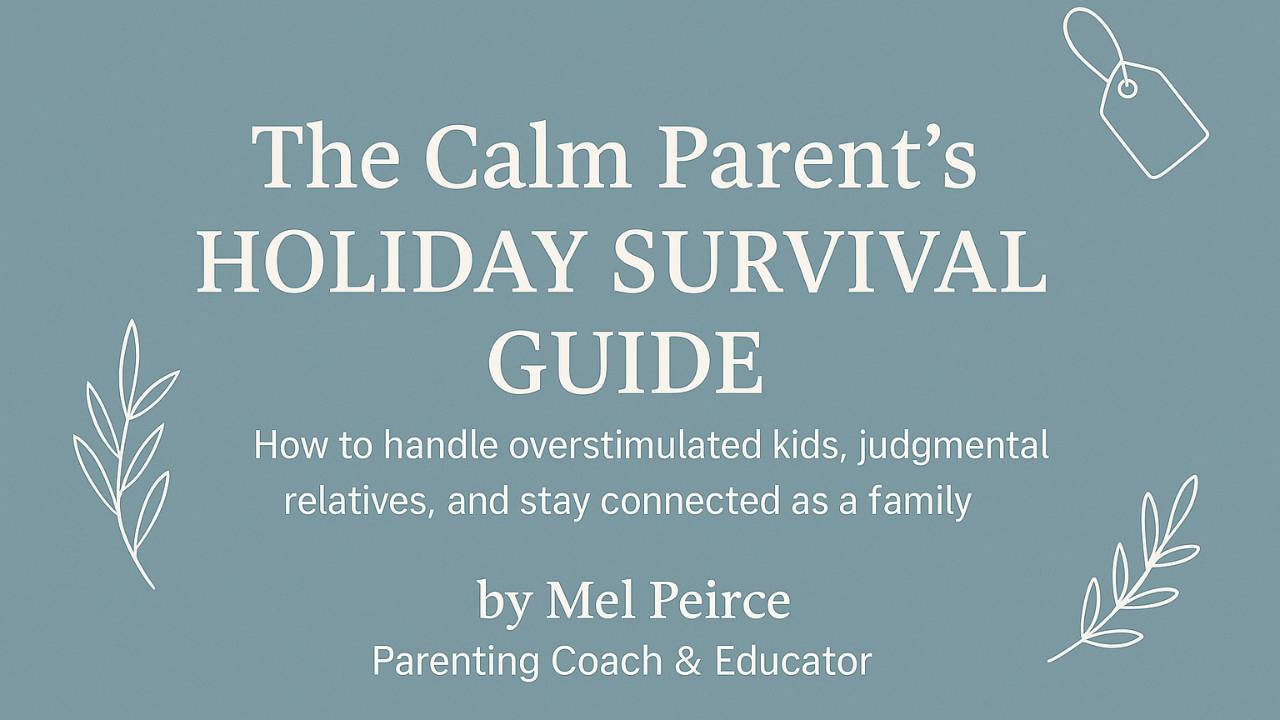How to set effective consequences that make sense
Apr 06, 2023
When your child isn’t listening or behaving as you would like, do you find yourself saying:
If you don’t stop that you’re going to lose the iPad!
If you don’t listen, you can’t go on your playdate tomorrow.
In my recent blog about threats, I shared how many parents end up using threats because they think their kids are out of control — but that’s not usually the case.
We tend to use threats most often when we, as parents ourselves, feel out of control. We are in the heat of the moment, our kids aren’t listening, we’re not sure what to do, and we are desperately trying to maintain control of the situation.
And when we’re feeling out of control and not sure what to do, we’re more frantic and reactive. We have moved out of our thinking brain where our logic resides — and without logic we end up throwing out consequences that don’t make sense or threats that we won’t likely follow through on.
But for consequences to be effective, they have to make sense. Consequences that make sense are directly tied to the behavior that you want to change, and they teach the connection between our child’s own decision making process and the loss of a privilege.
Here are some examples of consequences that make sense:
If your child is hitting their sibling with their lightsaber, they lose the lightsaber.
If your child throws the remote when you tell them it’s time to shut off the TV, they no longer get to control the remote or they don’t get to watch TV the following day.
Consequences that make sense are logical, and they help teach our kids what to do in that situation. They are also what your child will naturally experience in life. If they aren’t nice at school, the other students won’t want to play with them. If you’re not nice to others in the workplace, your co-workers won’t want to be around you or support you.
When consequences are arbitrary and don’t have anything to do with the lesson that you’re trying to teach, they can often backfire or they are outright ineffective.
Here are some examples of arbitrary consequences that don’t make sense:
If you don’t stop fighting, you’re going to lose the iPad.
If you don’t pick up your toys, you can’t have a playdate tomorrow.
Many parents think that the consequence has to be something the child really cares about, like taking away the iPad. But when losing the iPad has nothing to do with the lesson that you’re trying to teach, consider how effective that consequence is and how often you keep repeating it. How many times have you threatened to take away the iPad because it doesn’t actually change your child’s behavior?
I understand that it can be difficult to think on our feet and to come up with consequences in the heat of the moment. This is why I coach parents to come up with consequences that make sense in advance. I also recommend that the parents have a discussion with their parenting partner so they are both in agreement and the consequences are consistent.
When you decide consequences in advance you make sure they make sense, you avoid being stuck not knowing what to do, and you remain in control. And when you have a united front with your parenting partner, and the consequences are consistent, they are much more effective.
The process of setting consequences that make sense in advance is just one of the high impact tools in my Confident Parenting Toolbox. You get full access to the tools and expert help when you join the Confident Parenting Club. Click here to learn more.
Join the Confident Parenting Community.
Receive the latest tips and tools from the Confident Parenting Toolbox to support your kids
(and yourself!) with today's challenges so your whole family can thrive.
We hate SPAM. We will never sell your information, for any reason.


